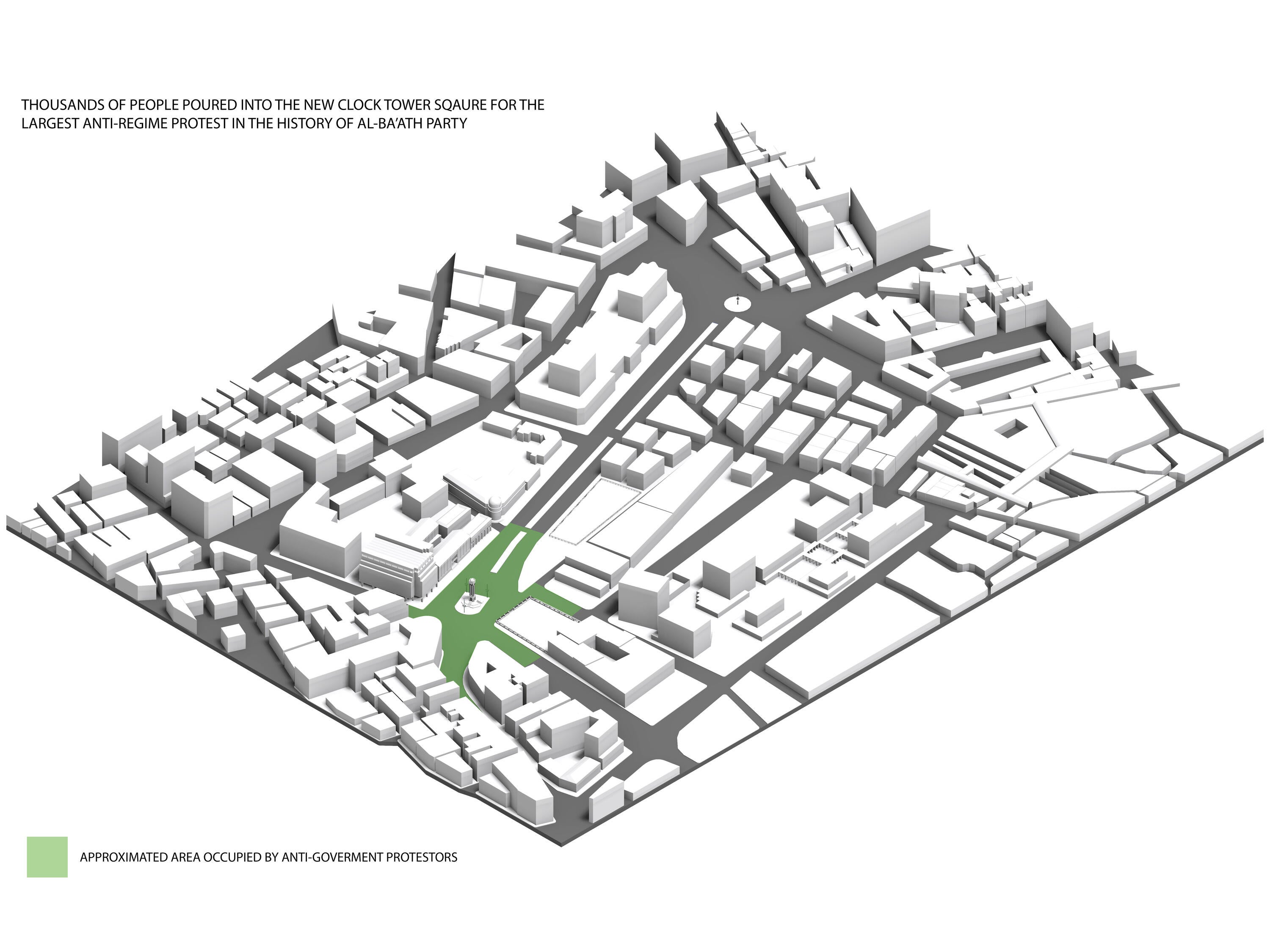Performing the Forbidden Public Space: The Case of the New Clock Tower Square in Homs, Syria

Abstract:
Public spaces in Syria have been controlled and militarized for a long time, even before the revolution of 2011. In the city of Homs, however, during the revolution's early days, thousands of people poured into the New Clock Tower Square for the largest anti-regime protest in the history of the ruling Ba’ath Party. In this sense, two different performances have been happening in the same square: the performance of the Syrian state to control and oppress the protest and the performance of the people to revolt and resist the state and its regime. This research spatially investigates and documents how the square suddenly shifted from a controlled space to a space of protest and expression, particularly on the 17th and 18th of April 2011.
In the city of Homs, the Syrian state used architecture and the urban fabric to perform controlling measures on the people, such as acts of destruction, neglect, renovation, and state-led developments. These acts also meant to instate political homogeneity that aligned with the regime’s sect, the Alawite sect, which also served their economic interests. These acts started before the revolution and were one of its triggers, putting the building market and the historic city center in the hand of the Syrian regime and those affiliated with it from the Alawi sect. Therefore, occupying the New Clock Tower Square in the city center by the people is considered a statement to challenge the state, reclaim the square, and assert their right to the city.
In this thesis, I investigate the duality of performance in the New Clock Tower Square using architecture and urbanism. Building on Judith Butler’s seminal theory of performativity and through mapping, morphological analysis, and archival research, the thesis attributes the conflict of performance to the square’s importance as a physical and symbolic space. The thesis argues that the connectivity and centrality of the square and its collective memory, starting from resisting the French Mandate in 1920 until this day, prompted the state to act in one way and the people to act in another. In the context of this complex socio-political, spatial, and national juxtaposition, the thesis highlights the role of architecture in meaning and identity politics in being an agent for change.
The
examining
committee
is
as
follows:
Supervisor:
Robert
Jan
van
Pelt
Co-Supervisor: Anwar
Jaber
Committee
member: Tara
Bissett
Internal-external
reader: David
Fortin
External: Sima
Kuhail
The
defence
examination
will
take
place:
Friday,
April
28,
2023,
12:00
p.m.
This
will
be
taking
place
in
person,
in
room
2026.
The
committee
has
been
approved
as
authorized
by
the
Graduate
Studies
Committee.
A
copy
of
the
thesis
is
available
for
perusal
in
ARC
2106A.